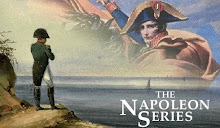Dois Links do Bicentenário das Invasões Francesas - Porto 2009
http://www.flickr.com/photos/11257022@N05/sets/72157617818265925/show/with/3517152952/
http://www.flickr.com/photos/11257022@N05/3515114855/in/set-72157617818265925/
Incursão nocturna do tenente-general da cavalaria Achim de Tamericurt a
Talavera – Janeiro de 1653
-
Mais um episódio das memórias de Mateus Rodrigues (Matheus Roiz), este
passado no início de 1653 e aqui transcrito directamente da fonte. Em este
tempo est...
Há 1 semana



















